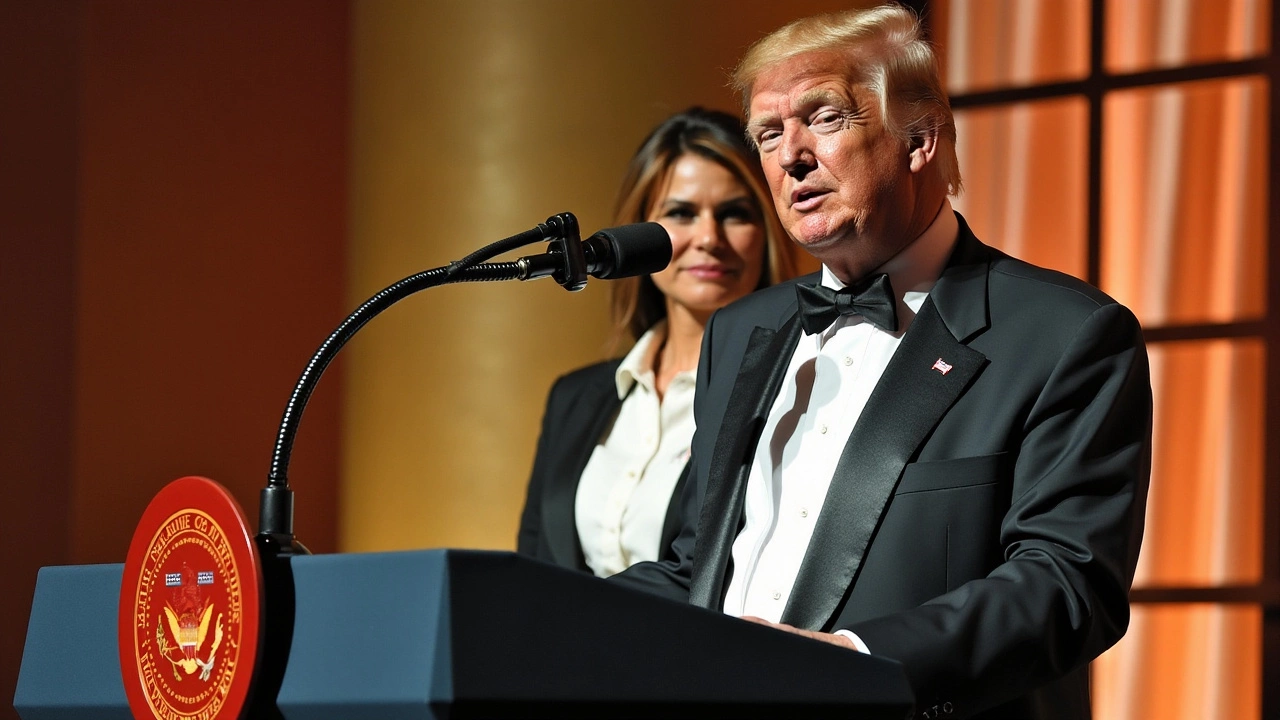Trump's Bold Proposal to Rename the Gulf of Mexico
On his first day in office, amidst fanfare and controversy, former President Donald Trump set forth an audacious plan as part of a series of executive orders, declaring his commitment to re-brand the Gulf of Mexico as the 'Gulf of America.' This announcement, brimming with rhetoric about American greatness, was delivered during his inaugural address. Trump’s assertion was tied to a broader strategy to assert American dominance, amid his frequent criticism of Mexico regarding cross-border complications such as illegal immigration and narcotics trafficking.
Trump proclaimed, with characteristic bravado, that the renaming of the Gulf aligns with what he identified as the United States doing the bulk of the labor in the region, remarking that the name should reflect the country’s impactful presence in that area. He coupled this declaration with a vow to restore Mount McKinley’s original name, further cementing his commitment to these symbolic changes. Alongside this, he hinted at rekindling historic American identities within geographical references.
A Clash with International Bodies and Legal Challenges
However, such a renaming is far from straightforward and slides into complex geopolitical and logistical territory. The naming of oceans and seas falls under the jurisdiction of the International Hydrographic Organization (IHO), a body that includes both the United States and Mexico among its member states. The shared jurisdiction over the maritime border in the Gulf introduces additional layers of complexity, given the historically collaborative agreements between both nations.
The United States and Mexico both control segments of the Gulf's expanse under international maritime laws. Additionally, the Submerged Lands Act of 1953 dictates that U.S. states have rights over natural resources extending up to three nautical miles into the Gulf, with some areas like Texas and the western coast of Florida granted even broader reach. This Act intertwines federal and state jurisdiction, making any unilateral name change untenable without cohesive legislative and international assent.
Domestic Support and Legislation Efforts
Domestically, Trump's proposal drew mixed reactions. Georgia Rep. Marjorie Taylor Greene, a staunch supporter of Trump, pledged to introduce legislation to reflect the name change on federal maps and administrative protocols. Yet, even if passed, such legislation would bind only U.S. federal entities, with no mandate for other nations to recognize or adopt the modification.
Historically, attempts to rename major bodies of water for political purposes have been symbolic gestures rather than practical proposals. For instance, in 2012, Mississippi State Rep. Steve Holland humorously proposed a similar name change to denounce xenophobic sentiments, highlighting such instances as often being more rhetorical than viable policy decisions.
Economic and Environmental Significance of the Gulf
The significance of the Gulf of Mexico transcends political musings, being a linchpin in North America’s ecological and economic dynamics. The Gulf sprawls over more than 600,000 square miles, furnishing approximately 40% of the United States’ seafood. It harbors a diverse range of marine life and supports substantial sectors involved in U.S. petroleum refining and natural gas processing.
With such economic footprints, stakeholders across ecological and industrial spheres have expressed concern over any actions that may disrupt existing international and regional collaborations. The Gulf stands as a testament to cooperative resource management and environmental stewardship, with its health and productivity tethered closely to bilateral efforts.
International Perspective and Future Implications
Internationally, the proposal, much like other bold declarations from the Trump administration, sparked debate. Many analysts view the gesture as more an assertion of nationalist sentiment than a feasible geopolitical shift. Key international players view the renaming as part of a broader strategy that, they argue, risks alienating pivotal allies and collaborative partners.
Geopolitical stability in regions like the Gulf is maintained through careful and diplomatic dialogue. Decisions impacting shared water bodies carry implications far beyond national borders, requiring transparent and inclusive processes for any proposed changes. Thus, despite robust proclamations, the reality remains that such motions are steeped in layers of diplomatic and legislative procedures, unlikely to be enacted purely on executive orders without substantial consent and cooperation.
Trump’s ambitious vision, although capturing public attention, underscores the intricate balance of nationalistic aspirations with existing international frameworks. While political actors may utilize such proposals to galvanize support or underscore sovereignty, the operationalization of such changes reminds them of the necessity for sustained diplomatic engagement and mutual respect among nations sharing common borders and resources.





